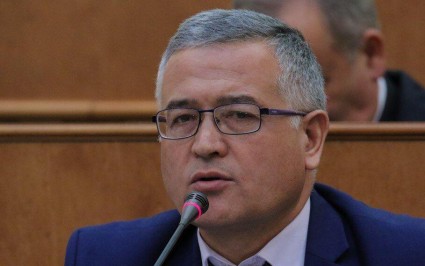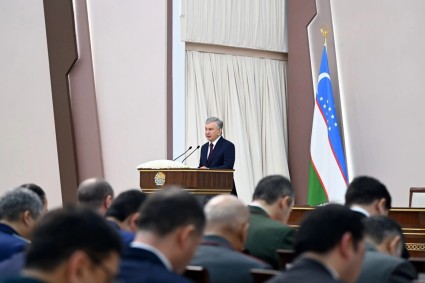Farmers in Uzbekistan are being forced to enter into additional agreements to change futures contracts with cotton-textile clusters in a “voluntary-compulsory” manner, to their own detriment. Kun.uz reported.
In the audio recording received by the publication, one can hear a person with a voice similar to the voice of the head of the agricultural department of the Surkhandarya province, Rakhmatullo Gafarov, telling the mayors of one of the districts that farmers need to sign a “form” that was “sent from Tashkent”.
“Our dearest mayor, a form was sent from the exchange in Tashkent just now. Tomorrow, 100% of farms must attend the mayor-chaired meeting. When all the farmers gather, you need to put a stamp on this form and get a signature on one side. Thus, the new resolution of the Cabinet of Ministers No. 574 will be implemented. The price will again be 6,800 soums, the state will add a subsidy to it, and after adding 1,000 soums, the price will be 7,800 soums. All previously inked deals at a price of 8,000-9,000 soums will become null for 100%,” the man said.
The press service of the Ministry of Agriculture told that they had not not given such instructions, orders or directions to the local branches of agriculture. The governor’s office of Surkhandarya province said that they were studying the situation and the audio recording, and also assured that there were no such instructions.
The said Resolution of the Cabinet of Ministers of September 13 provides for entering into addendum contracts between cotton producers and processing enterprises to contracts entered into at exchange trades for 2024, taking into account that the price of raw cotton should not be lower than 6.8 million soums per ton.
Earlier in February, the government announced a recommended minimum price of 7,800 soums per 1 kg of cotton, at which price farmers and clusters entered into futures contracts (in some cases, 8,500 soums). However, on the world exchange, prices at that time approached 6,000 soums per 1 kg. We explained how the price is formed, how the terms of agreements are revised to the detriment of farmers and why they are unhappy.














